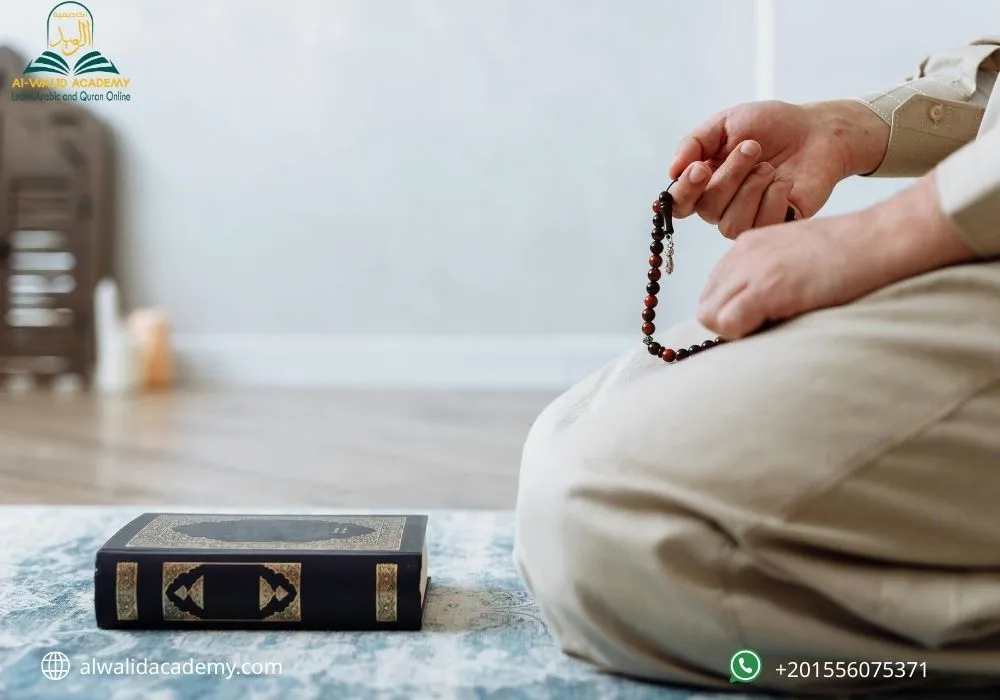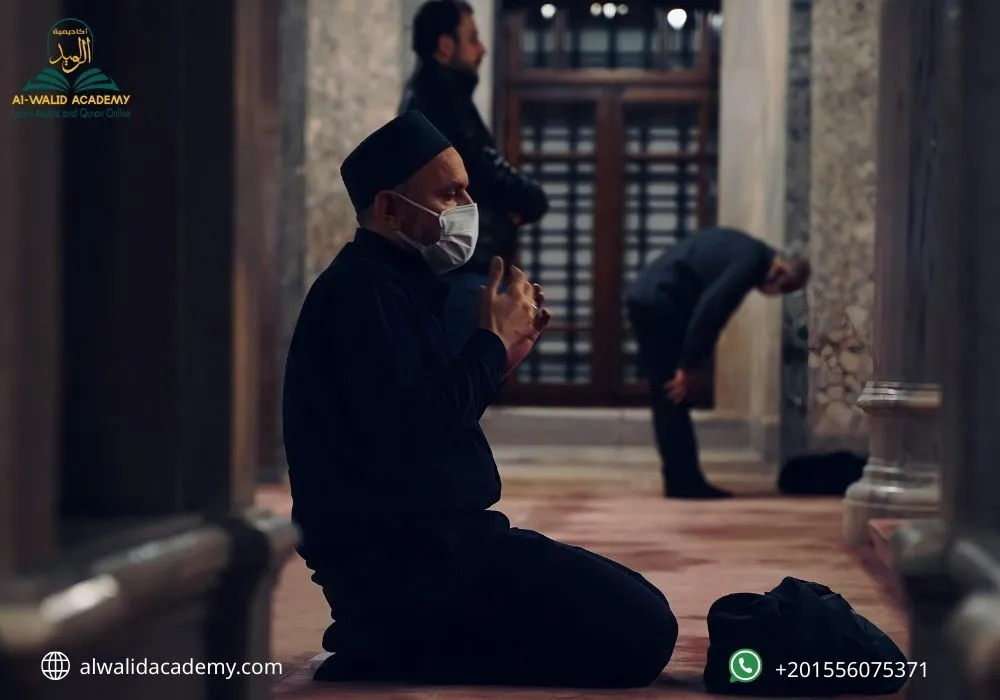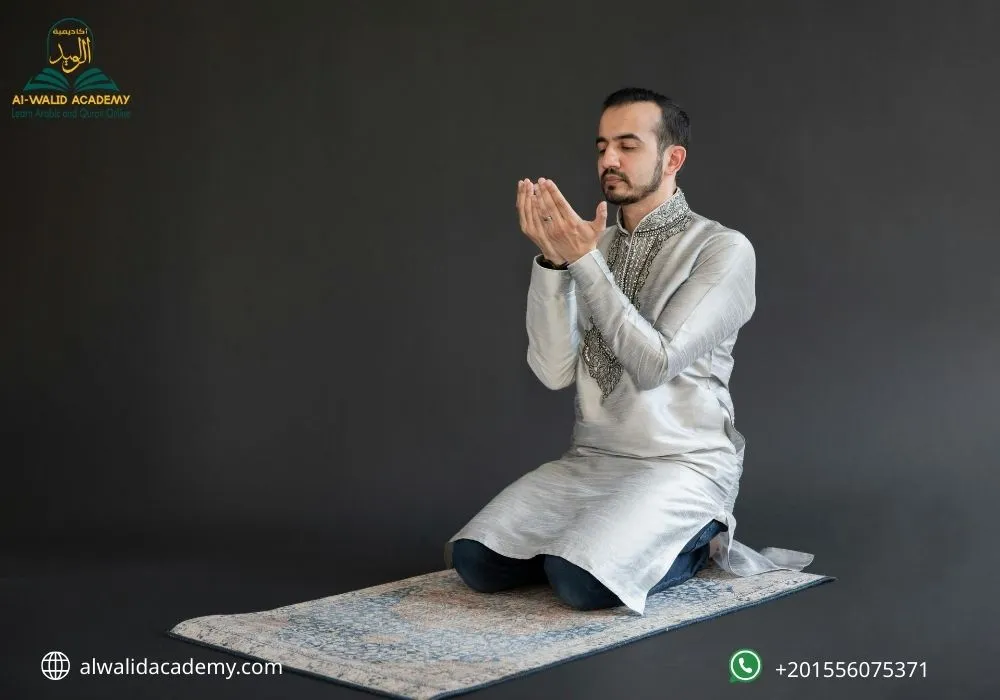Embracing Islam is a life-changing journey filled with both excitement and challenges. As a new Muslim, you may be eager to learn how to pray, understand the Quran, and build a strong foundation of faith. This New Muslim Convert Guide is designed to give you clear, step-by-step guidance on daily practices, essential knowledge, and spiritual growth. Whether you are learning how to perform Wudu, recite your first Surah, or seeking a supportive community, this guide will help you stay grounded in faith and connected to Allah.
Introduction to Islam for New Muslims
Entering Islam is more than adopting a new faith, it’s embracing a complete way of life. For new Muslims, the first steps often feel overwhelming, but with patience and guidance, the journey becomes rewarding. At its core, Islam is built on simple foundations that provide clarity, peace, and a direct connection with Allah.
Understanding the Shahada
The Shahada is the declaration of faith and the doorway into Islam. By saying, “La ilaha illallah, Muhammadur Rasulullah” (There is no god but Allah, and Muhammad is His Messenger), a person officially accepts Islam. For new converts, reflecting on this statement every day strengthens belief and reminds them of their purpose.
Basics of Prayer (Salah) for Beginners
Welcome to Salah, the beautiful second pillar of Islam and the very heartbeat of your faith. Prayer is your personal connection, a direct and peaceful conversation with Allah that punctuates your day with moments of tranquility and reflection.
As you begin this journey, remember that it is a path of gentle steps, not a race to perfection. Allah sees your sincerity and effort, not a flawless performance. You don't need to learn everything overnight. Your focus should be on building a foundation of love for this beautiful act of worship.
Your path to embracing Salah can begin with three simple focuses:
-
Learning the Rhythm: Start by becoming familiar with the names and timings of the five daily prayers (Fajr, Dhuhr, Asr, Maghrib, Isha).
-
Understanding the Movements: Gently learn the basic postures of standing, bowing, and prostration. Each movement is a symbol of humility and submission to the Creator.
-
Reciting with Heart: Begin memorizing a few short chapters (surahs) from the Quran, like Al-Fatihah and the last three chapters (the "Quls").
Learn online from the comfort of your home, at a pace that suits you. Let us help you turn your sincere efforts into beautiful recitation.Ready to enrich your prayer? Click here to learn more about our Quran Recitation Course and enroll today.
By learning gradually, you will build not just confidence in your prayer, but a consistent and lasting habit. Every prayer you attempt is a success, bringing you closer to the peace and guidance that Salah offers.

Daily Practices Every New Muslim Should Know
Establishing daily practices helps new Muslims build consistency in their faith. These acts not only strengthen the connection with Allah but also make Islamic routines a natural part of life.
Wudu (Ablution) Step by Step
Performing wudu is essential before prayer. It purifies both body and spirit. The steps include:
-
Washing the hands, mouth, and nose.
-
Washing the face and arms up to the elbows.
-
Wiping the head and ears.
-
Washing the feet up to the ankles.
Learning this early ensures prayers are valid and done with mindfulness.
How to Perform the Five Daily Prayers

Embarking on the journey of Salah (the five daily prayers) is one of the most beautiful and rewarding steps in a Muslim's life. It is your personal, direct conversation with Allah, a source of peace, guidance, and mindfulness. While it may feel like a significant undertaking at first, remember that every journey begins with a single step. By focusing on the fundamentals, you can build a consistent and heartfelt prayer habit with ease.
Salah may feel difficult at first, but starting with these basic steps makes it easier:
1. Embrace the Rhythm of the Day: Know the Prayer Times
Salah is beautifully integrated into the rhythm of daily life, marking moments for pause and reflection. The first step is to become aware of the five prayer windows.
|
Prayer Name |
Timing |
Significance |
Fard Rak'ahs (Obligatory Units) |
|
Fajr (Dawn Prayer) |
Before sunrise |
A peaceful start to the day, connecting with Allah before the world awakens. |
2 |
|
Dhuhr (Midday Prayer) |
After the sun passes its peak |
A moment to pause during the day for a spiritual reset and to seek guidance. |
4 |
|
Asr (Afternoon Prayer) |
Late afternoon |
A time for reflection and gratitude as the day begins to wind down. |
4 |
|
Maghrib (Sunset Prayer) |
Just after sunset |
Marks the end of the daylight hours; a moment to seek forgiveness and thanks. |
3 |
|
Isha (Night Prayer) |
After dusk has settled |
The final prayer of the day, offering a chance to find tranquility and peace before rest. |
4 |
Practical Tip: Use a reliable prayer app on your phone or a local mosque's timetable to know the exact times each day, as they change slightly.
2. Find Your Voice in Prayer: Learn Short Surahs to Recite
Reciting the Qur'an is a core part of Salah. You do not need to know long chapters to begin. Start with the essentials and build from there.
-
The Foundation (Al-Fatihah): The first chapter of the Qur'an, Surah Al-Fatihah, is recited in every unit of every prayer. Make this the first chapter you memorize.
-
Short, Powerful Surahs: After Al-Fatihah, focus on some of the shortest chapters at the end of the Qur'an. They are easy to memorize and carry profound meaning. Good ones to start with include:
-
Surah Al-Ikhlas (Chapter 112)
-
Surah Al-Falaq (Chapter 113)
-
Surah An-Nas (Chapter 114)
Practical Tip: Listen to recitations of these chapters online to help with pronunciation and memorization. Read their translations to connect with the meaning, which will deepen your focus in prayer.
3. The Heart of the Matter: Focus on Sincerity and Consistency, Not Perfection
This is the most important principle for a beginner. The goal is to build a lasting relationship with Allah through prayer, and relationships are built on effort and consistency, not flawlessness.
-
Sincerity (Khushu'): Your prayer is for Allah alone. Try to clear your mind and focus on the act of worship. If your mind wanders, gently bring it back. Allah recognizes your effort more than the perfection of your focus.
-
Consistency is Key: It is far better to pray all five prayers consistently, even if you feel you are making mistakes, than to wait for a "perfect" moment that may never come. Allah loves consistent deeds, even if they are small.
-
Embrace the Journey: You will make mistakes, forget a verse, or lose count. This is a normal part of learning. Simply ask for forgiveness and continue. Allah is the Most Merciful and appreciates your commitment to learn and grow.
Prayer is not a performance; it is a conversation. By knowing the times, learning the basics, and approaching it with a sincere heart, you will find that Salah becomes a cherished and indispensable part of your day.
Many Muslims strive to perfect their prayers but did you know there are specific times when Salah is prohibited or discouraged? This eye-opening article breaks down the major forbidden periods Forbidden times of Salah.
Simple Duas for New Muslims

Welcome to your beautiful new journey in Islam! One of the most wonderful ways to feel connected to Allah throughout your day is through dua, which is the simple act of supplication or making a personal prayer. It's your direct conversation with the Creator.
Don't feel pressured to learn long, complex prayers immediately. Islam is a path of ease, and Allah values the sincerity in your heart far more than the length of your words. Here are a few short, powerful duas that are easy to memorize and can be used in your daily life to bring blessings and mindfulness into everything you do.
1. The Dua of Gratitude and Praise (Tasbih)
This is one of the simplest yet most profound ways to remember Allah. You can say these phrases anytime, anywhere while walking, waiting in line, or just before sleeping.
-
Subhan'Allah (سُبْحَانَ الله): "Glory be to Allah." (Used to praise Allah's perfection)
-
Alhamdulillah (الْحَمْدُ لِلّٰهِ): "All praise is for Allah." (Used to show gratitude)
-
Allahu Akbar (اللهُ أَكْبَرُ): "Allah is the Greatest." (Used to acknowledge Allah's greatness)
2. Dua for Seeking Knowledge and Guidance
As a new Muslim, you are on a path of learning. This is a perfect dua to ask Allah to make things easier for you and to increase your understanding.
Rabbi zidni 'ilma
رَبِّ زِدْنِي عِلْمًا
"My Lord, increase me in knowledge."
(Qur'an 20:114)
3. Dua Before and After Eating
Bringing Allah's name into everyday acts like eating turns them into worship.
-
Before Eating: Bismillah بِسْمِ اللهِ "In the name of Allah."
-
After Eating: Alhamdulillah الْحَمْدُ لِلّٰهِ "All praise is for Allah."
4. Dua for Protection
This beautiful dua asks Allah for well-being in this life and the next. It's a comprehensive prayer for overall goodness.
-
Rabbana atina fid-dunya hasanatan wa fil 'akhirati hasanatan waqina 'adhaban-nar.
رَبَّنَا آتِنَا فِي الدُّنْيَا حَسَنَةً وَفِي الْآخِرَةِ حَسَنَةً وَقِنَا عَذَابَ النَّارِ
"Our Lord, give us in this world [that which is] good and in the Hereafter [that which is] good and protect us from the punishment of the Fire."
(Qur'an 2:201)
Remember, dua is a personal journey. You can always speak to Allah in your own language, from your heart, about anything you need. The duas above are simply tools taught by the Prophet Muhammad (peace be upon him) and the Qur'an to help us.
Be patient with yourself. Your sincerity and effort are what matter most. May Allah bless your journey and fill your heart with peace.
Learning the Quran as a New Muslim

For new Muslims, connecting with the Qur’an is one of the most rewarding steps in their journey. It provides guidance, peace, and a sense of closeness to Allah.
Start with Short Surahs
Beginning with short chapters makes memorization and recitation easier:
-
Surah Al-Fatiha (The Opening) – required in every prayer.
-
Surah Al-Ikhlas, Al-Falaq, and An-Nas – short, powerful chapters of protection.
-
Repeating them daily builds fluency and confidence.
Benefits of Reading the Quran in Arabic
Although translations help with understanding, reciting in Arabic has unique blessings:
-
It preserves the original meaning without change.
-
Arabic recitation strengthens prayer.
-
Listening and repeating improves pronunciation naturally.
Online Quran Courses for Beginners
Guided learning can make a huge difference. Online classes offer:
-
Step-by-step tajweed (rules of recitation).
-
Flexible schedules for busy learners.
-
Direct support from qualified teachers who understand the challenges of new Muslims.
Learning the Qur’an gradually ensures that new Muslims develop not just knowledge, but also a deep emotional and spiritual connection with the words of Allah.
Make 2025 the year you transform your relationship with the Quran. Start your journey today and let the light of divine wisdom guide your life with our Quran Classes For Adults.
Learn Quran, Arabic, and Islamic Studies with certified teachers in fun, interactive, and personalized sessions. Join thousands of students around the world and begin your path today!
Importance of Learning the Quran Early
Instilling a love for the Quran in a child from a young age is one of the greatest gifts a parent can offer. Just as a young tree is easiest to shape, a child's mind and heart are most receptive to the divine words of Allah, setting a blessed foundation for their entire life.
The Young Mind: A Prime Time for Memorization
Children's brains are like sponges, uniquely wired to absorb languages and information effortlessly. This early stage of development is a golden opportunity for memorizing the Quran. The verses they learn at this age become deeply ingrained, much like their native language, making recall easier throughout their lives. This process not only blesses them with the words of Allah but also sharpens their memory, enhances their concentration, and builds strong cognitive skills that benefit them in all other areas of their education.
Building a Lifelong Moral Compass
When a child learns the Quran early, its teachings of kindness, honesty, respect, and compassion are woven into the very fabric of their character. The stories of the prophets, the lessons of patience, and the emphasis on gratitude shape their worldview and become their internal moral compass. They grow up with a clear understanding of right and wrong based on divine wisdom, helping them navigate life's challenges with faith and integrity. This early spiritual nourishment builds a resilient and firm foundation of iman (faith).
A Source of Peace and a Constant Companion
Life is filled with ups and downs, and the Quran is the ultimate source of comfort and tranquility (sakinah). A child who grows up with the Quran in their heart has a lifelong companion to turn to in times of stress, sadness, or confusion. The verses they have memorized become a source of solace and strength, reminding them of Allah's mercy and guidance. This internal connection provides a powerful tool for emotional well-being that no worldly possession can match.
Blessings for This Life and the Hereafter
The effort a child and their parents put into learning the Quran brings immense rewards. The Prophet Muhammad (peace be upon him) highlighted the high status of those who memorize the Quran. Furthermore, he gave beautiful news for the parents, stating that on the Day of Judgment, the parents of a child who learned and acted upon the Quran will be honored with crowns of light. Investing in a child's Quranic education is thus an investment in their success and salvation, and a source of immense blessings for the entire family in the Hereafter.
Begin this rewarding journey today. Enroll your child in our Quran lessons for Kids online and watch them build a lifelong connection with the words of Allah.
Common Challenges New Muslims Face
Converting to Islam is a life-changing step that brings peace and purpose, but it also comes with real challenges that many new Muslims experience. Understanding these challenges helps prepare the heart and mind for a smoother journey.
1. Family and Social Reactions
One of the biggest struggles is how family and friends respond. Some may not understand the decision, others may reject it completely. This can create feelings of isolation and pressure to “prove” the sincerity of faith.
2. Learning Prayer and Daily Practices
New Muslims often find it difficult to learn Salah (prayer), Wudu (ablution), and Quran recitation in Arabic. The pressure to do everything perfectly at once can feel overwhelming, even though Islam encourages gradual learning.
3. Language Barriers
Since the Quran is in Arabic, many converts worry about not understanding or pronouncing correctly. This barrier can make them feel distant from the text, especially in the early stages.
4. Finding a Supportive Community
Not every new Muslim has access to a welcoming mosque or Muslim community. Lack of guidance and companionship can lead to loneliness and uncertainty about how to practice daily life as a Muslim.
5. Balancing Faith with Work and Family Life
Managing prayer times, dietary changes (like avoiding pork and alcohol), and religious obligations while maintaining work schedules and family duties can be a real test, especially in non-Muslim societies.
6. Facing Doubts and Misconceptions
New Muslims are often confronted with stereotypes, media misconceptions, or questions they cannot yet answer. Without proper knowledge, this can lead to confusion or hesitation in practicing openly.
Adjusting to New Routines
Praying five times a day may feel overwhelming at first.Building small habits step by step makes it easier.Consistency is more important than perfection.

Learning Arabic Pronunciation
To learn Arabic is to learn a language of deep history and rhythm. As the evening settles here in Cairo, the air itself seems to carry its melodies from the sacred call to prayer to the lively street conversations. At the heart of this beauty lies its unique pronunciation.
For a beginner, the sounds of Arabic can seem challenging, with letters that originate from deep in the throat and subtle vowel changes that can alter entire meanings. But don't be discouraged. Mastering pronunciation is not about achieving perfection overnight; it's about patiently training your ear and your tongue to unlock the true music of the language. This skill is the key to both confident communication and, for Muslims, the beautiful and correct recitation of the Quran.
Here’s how you can begin your journey:
1. Become an Active Listener
Before you can produce the sounds, you must first learn to hear them. Immerse yourself in the cadence of Arabic.
-
Listen to Quran Recitation: Pay close attention to how skilled reciters (Qaris) pronounce each letter, especially the ones that are new to you like 'Ayn (ع) and Ha (ح).
-
Enjoy Arabic Media: Listen to Arabic songs, podcasts, or news broadcasts. Don't worry about understanding every word; just focus on the rhythm, the flow, and the distinct sounds. This trains your ear to recognize the correct pronunciation naturally.
2. Isolate and Practice the Challenging Letters
Arabic has several sounds that don't have a direct equivalent in English. The key is to tackle them one by one.
-
Watch and Learn: Use online videos to watch how native speakers form these sounds. Pay attention to the shape of their mouth and where the sound is coming from in the throat or mouth.
-
Start with the Basics: Focus on distinguishing between similar-sounding letters, such as 'S' (س) and 'Saad' (ص), or 'T' (ت) and 'Taa' (ط).
-
Feel the Sound: Pronunciation is physical. Sometimes, you need to literally feel where the sound is vibrating in your throat or how your tongue is positioned against your teeth. Be patient with this process.
3. Record Yourself and Find Feedback
One of the most powerful tools for improvement is your own voice.
-
Record and Compare: Choose a short word or phrase. Record a native speaker saying it, then record yourself. Compare the two. This private practice helps you identify differences without any pressure.
-
Seek Gentle Correction: If you have a tutor, a language partner, or a friend who is a native speaker, ask them to listen to you. A good teacher will provide gentle and encouraging feedback that builds your confidence.
Learning Arabic pronunciation is a journey of small, consistent steps. Every sound you master is a victory that brings you closer to the heart of this rich language and deepens your connection to the words of the Quran.Start your journey in learning Arabic now with our Academy and with our course Learning Arabic for Beginners.
Building Confidence in Islamic Practices
It’s natural to feel shy or unsure in the beginning.Remember that every Muslim started somewhere. Joining a supportive community boosts confidence and motivation.
By understanding these challenges, new Muslims can approach their faith with patience, knowing that Allah rewards effort, even in small steps.
Spiritual Growth and Community Support
Islam is not just about personal worship; it’s also about being part of a supportive community that nurtures faith and growth.
Finding a Local Mosque and Community
-
A mosque is more than a place of prayer it’s a hub for guidance, learning, and friendships.
-
Attending Friday prayers (Jumu’ah) helps new Muslims feel connected.
-
Many mosques offer beginner-friendly classes and programs.
Importance of Muslim Friends and Mentors
-
Having practicing Muslim friends provides encouragement and role models.
-
A mentor can guide you through questions about prayer, Quran, and daily life.
-
Surrounding yourself with supportive people helps you avoid isolation.
Staying Consistent in Worship
-
Set aside regular times for prayer and Quran reading.
-
Remember that consistency, even in small actions, is beloved to Allah.
-
Seek motivation by attending community events and study circles.
Spiritual growth flourishes when paired with the strength of community support, helping new Muslims stay grounded and inspired on their journey.
Struggling to find friends or mentors offline? You're not alone and you're not without support.
online Quran courses are designed to connect you with compassionate teachers, a supportive learning community, and a path to spiritual growth all from the comfort of your home.
Practical Tips for Staying Strong in Faith

Embracing Islam is a beautiful journey, but staying consistent in faith requires steady effort and practical steps. These simple tips can help new Muslims build confidence, maintain balance, and strengthen their connection with Allah day by day.
Setting Daily Goals for Learning
As a new Muslim, consistency is more valuable than quantity. Setting small daily goals can help you grow steadily:
-
Read one short surah or a few verses of the Qur’an each day.
-
Learn one new dua or Islamic phrase weekly.
-
Dedicate a few minutes to listening to lectures or podcasts that strengthen your faith.
-
Keep a notebook to track what you’ve learned it helps you stay motivated.
This approach prevents overwhelm and allows your knowledge and practice to build naturally.
Balancing Work, Family, and Worship
Life can feel busy, and balancing your responsibilities with worship may seem challenging at first. Here are ways to manage:
-
Plan your prayers around work or school schedules by using reminders or apps.
-
Include your family in small acts of worship, such as making dua together or listening to Qur’an recitation at home.
-
Take short breaks during the day for dhikr (remembrance of Allah) to stay spiritually connected.
-
Remember, Islam encourages balance you don’t need to give up your worldly duties, but rather integrate worship into your daily life.
Making Dua for Guidance and Strength
Dua (supplication) is a direct way to connect with Allah, and it strengthens both faith and resilience. Some practical tips:
-
Ask Allah for ease in learning and practicing Islam.
-
Make dua in your own language it is always accepted.
-
Include supplications for patience, guidance, and protection from doubts.
-
Repeat short duas like “Rabbi zidni ilma” (My Lord, increase me in knowledge).
Dua is a reminder that you are never alone in your journey Allah is always listening and ready to support you.Whether you're facing exams, emotional stress, or major life decisions, these timeless prayers can help you find peace and resilience through Dua for Making Things Easy.
Why Al-Walid Academy Is the Right Choice for New Muslim
Embarking on the journey of Islam can feel overwhelming at first, but the right guidance makes all the difference. Al-Walid Academy is dedicated to helping new Muslims find confidence, clarity, and spiritual growth through personalized support and structured learning.
Personalized Quran Classes for Beginners
-
Step-by-step guidance for those starting from scratch.
-
Focus on correct pronunciation and understanding.
-
Flexible online classes designed to fit your schedule.
Supportive Environment for New Converts
Teachers experienced in supporting new Muslims.A welcoming atmosphere that encourages questions.Access to a community that nurtures both faith and practice.
Ready to take the next step? Join Al-Walid Academy today and begin your journey with supportive guidance and personalized learning.
Learn Quran, Arabic, and Islamic Studies with certified teachers in fun, interactive, and personalized sessions. Join thousands of students around the world and begin your path today!
Conclusion
Accepting Islam is the beginning of a beautiful journey filled with faith, learning, and growth. As a new Muslim, taking small but consistent steps such as learning the Shahaadah, performing daily prayers, and connecting with the Quran helps you build a strong foundation. While challenges may arise, relying on community support, making dua, and setting daily goals will keep your heart firm and motivated.
At Al-Walid Academy, new Muslims are given the tools, guidance, and encouragement to navigate this path with confidence. With personalized Quran classes, supportive teachers, and a welcoming environment, you will never feel alone in your journey. Embrace your new chapter, stay connected to Allah, and remember that every step you take in faith brings you closer to Him.
FAQs
What should I do first after converting to Islam?
The first step is to sincerely declare the Shahada (testimony of faith). After that, focus on learning the basics of prayer (Salah) and purification (Wudu). Take things gradually. Islam encourages consistency over perfection.
Do I need to learn Arabic immediately as a new Muslim?
No, it’s not required right away. Start by learning short Surahs and simple daily duas. Over time, you can work on Arabic pronunciation and understanding to deepen your connection with the Quran.
How can I balance my new faith with my work and family life?
Begin with small adjustments, like setting aside a few minutes for prayer and Quran reading daily. Over time, balancing work, family, and worship becomes easier with good planning and support.
What if I make mistakes in prayer or forget steps?
That’s completely normal. Allah is Most Merciful, and learning takes time. Keep practicing and seek guidance from trusted teachers or fellow Muslims without feeling discouraged.
How can I find a supportive Muslim community?
Visit your local mosque, join Islamic study circles, or connect with online communities for converts. Surrounding yourself with Muslim friends and mentors helps you stay motivated and supported.
Why should I choose Al-Walid Academy as a new Muslim?
Al-Walid Academy offers personalized Quran classes designed for beginners, a supportive environment for new Muslims, and guidance from experienced teachers who understand the unique needs of converts.
Is it haram to convert to Islam for marriage?
Converting to Islam is only valid if it comes from true belief in Allah and His Messenger. If a person says the Shahada only to marry, without real faith, then the conversion is not accepted. But if marriage leads someone to sincerely believe in Islam, then the conversion is valid and allowed.
What are the requirements to convert to Muslim?
To become a Muslim, the only requirement is to sincerely declare the Shahada (the testimony of faith):
“I bear witness that there is no god but Allah, and I bear witness that Muhammad is the Messenger of Allah.”
This declaration must be said with belief in the heart and conviction. No special ceremony, paperwork, or witnesses are required—though having witnesses is recommended. After conversion, new Muslims are encouraged to learn how to pray, read the Quran, and practice Islam step by step.


